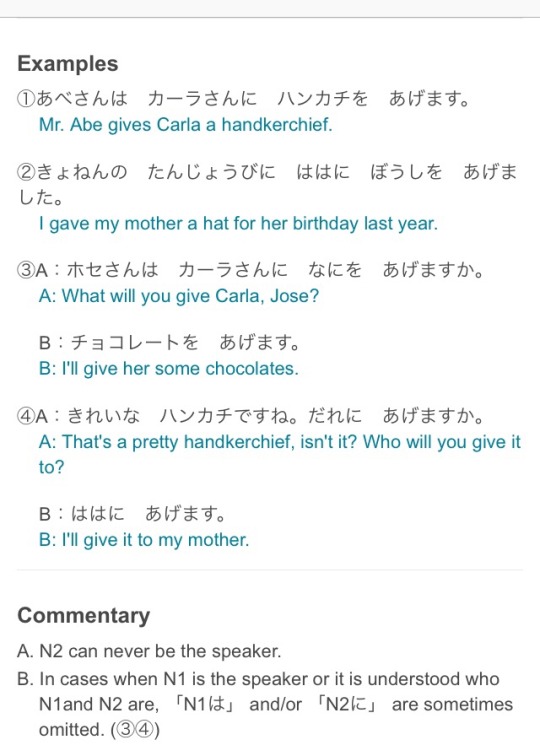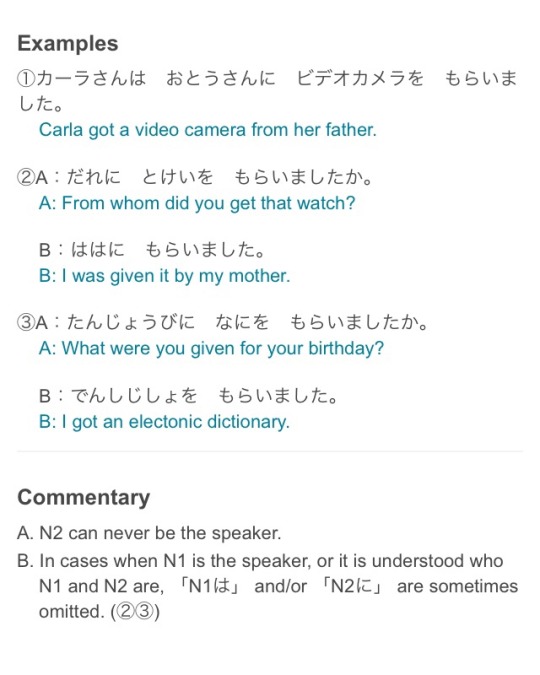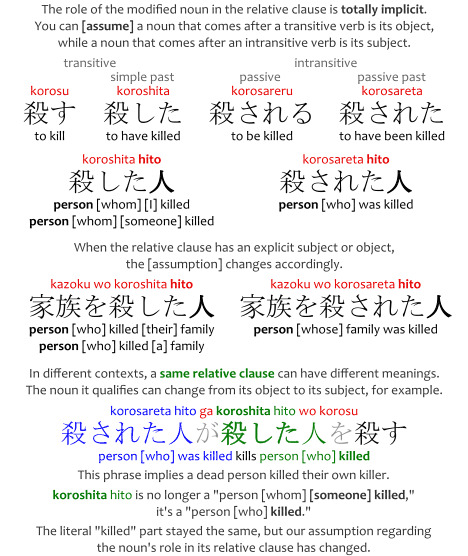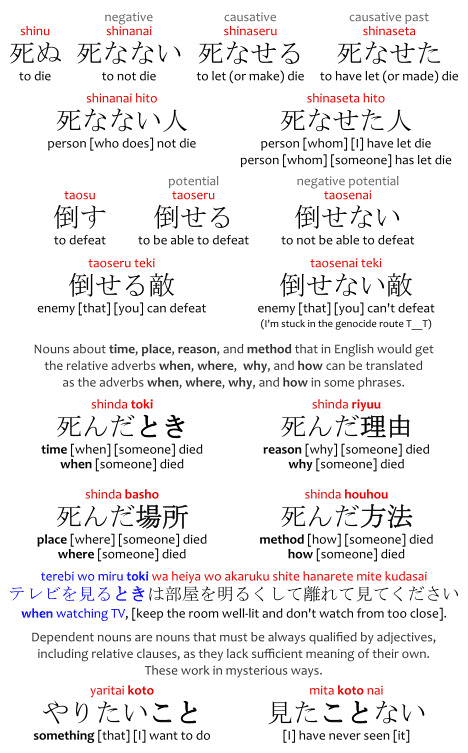Photo
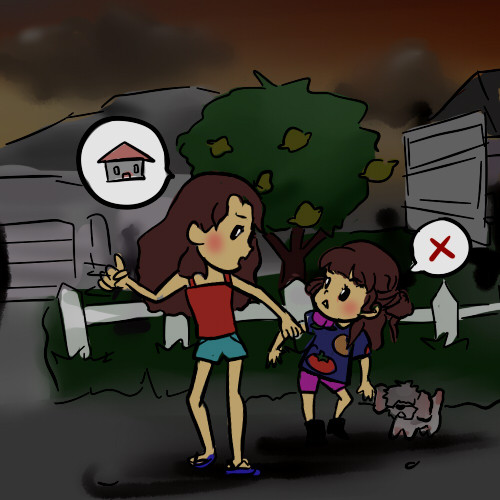
夕暮れで幽霊が来るんだ!!
子供の頃、毎日の夕暮れ、必ず近所の子供たちがいつも小さな声で「すぐに帰ろう! 幽霊が来るんだから!」とささやくのが聞こえた。
お姉さんの友達と一緒に路地で遊ぶ間に、初めてその話を姉から聞いた。 太陽が地平線の後ろに沈み始め、不安そうな顔をした姉は、腕を掴んで「早く帰ろう」と言った。
私は「えー、なんで? まだ遊びたいんだもん、」と文句を言った。
お姉さんは私に「明日遊べる!今帰ろう! 幽霊がこの世界に一番入りやすいのは夕暮れだから!」と叱った。
「ゆう。。。れい?」たぶん私のお姉さんは頭がおかしくなったのだろうと思った。
その時に、私は他の近所の子の逃げる姿に気づいた。 さようなら」を言わずに、家に入り、ドアを閉めた。
「あれ? 親たちが私たちを早く帰る目的でだましているのかなぁ?」と思わずにはいられなかった。 しかし、誰もが夕暮れが幽霊をもたらすと本当に信じているかのようだった。
説明があるでしょう!たぶん、目が私たちの光にだまされたり影が光と多過ぎだけで混ざり合ったりしているのかもしれない」と考えた。同時に、私はその話が本当かどうか疑問に思っていた。
大学を卒業するまでその町に住んでいた。 今でも、その近所の子供たちが「すぐに帰ろう! 夕暮れで幽霊が来るんだ!」と聞こえる。でも、夜になるまで待っても、外の道で夕暮れ時に幽霊を全然見たことがない。
しかし、家の中では別の話だけど。。。
ひらがなバージョン
こどものごろ、まいにちの ゆうぐれ、かならず きんじょの こどもたちが いつもちいさな声で「すぐにかえろう! ゆうれいが くるんだから!」とささやくのがきこえた。
おねえさんの ともだちと いっしょに ろじで あそぶ あいだに、はじめて そのはなしを あねから きいた。 たいようが ちへいせんの うしろに しずみはじめ、ふあんそうな かおを したあねは、うでを つかんで「はやく かえろう」といった。
私は「えー、なんで? まだ あそびたいんだ もん、」ともんくを いった。
おねえさんは わたしに「あひた あそべる! いま かえろう! ゆうれいが この世界に いちばん はいりやすいのは ゆうぐれだから!」としかった。
「ゆう。。。れい?」たぶんわたしの おねえさんは あたまが おかしくなったのだろう とおもった。
そのときに、わたしは ほかの きんじょのこの にげるすがたに きづいた。 「さようなら」をいわずに、いえに いrり、ドアをしめた。
「あれ? おやたちが わたしたちを はやくかえる もくてきで だましているのかなぁ?」とおもわずに はいられなかった。 しかし、だれもが ゆうぐれが ゆうれいを もたらすと ほんとうに しんじているかのようだった。
「せつめいが あるでしょう! たぶん、めが わたしたちの ひかりに だまされたり かげがひかりと おおすぎだけで まざりあったり しているのかもしれない」とかんがえた。どうじに、わたしは そのはなしが ほんとうかどうか ぎもんに おもっていた。
だいがくを そつぎょうするまで そのまちに すんでいた。 いまでも、そのきんじょの こどもたちが「すぐにかえろう!ゆうぐれで ゆうれいが くるんだ!」ときこえる。でも、よるになるまで まっても、そとの みちで ゆうぐれときに ゆうれいを ぜんぜんみたことがない。
しかし、いえの なかでは べつのはなしだけど。。。
English Version
When I was a child, every day at dusk without fail, you could hear the neighborhood kids whispering in a small voice “Let’s hurry up and go home because the ghosts are coming!
I heard it for the first time from my older sister, as we played in the alleyway with her friend. The sun was starting to sink behind the horizon when my sister looked at me with unease grabbing my arm as she said, “Let’s hurry up and go home.”
“What- Why? But I still want to play!” I complained.
“We can play tomorrow! Now, let’s go home! Because dusk is the easiest time for ghosts to enter this world!” She scolded me.
“Ghosts…?” I thought maybe my sister had gone crazy.
It was at that time, that I noticed the retreating forms of the other neighborhood kids. Without saying “goodbye” they entered their houses, and closed their doors.
“Huh? Maybe our parents are tricking us so that we go home earlier.” I couldn’t help but think. However, it seemed that everyone really believed that dusk brought ghosts.
“There must be some explanation! Maybe the light is playing tricks on us, or the maybe shadows are mixing just a little too much with the light!” I thought. But at the same time, I wondered if it was true.
I lived in that town until I graduated from college. Even to this day, the neighborhood kids can be heard saying “Hurry up and go home! The ghosts come at dusk!” But, even when I had waited until it had become night, I had never seen a ghost in the streets outside.
Inside the house, however, was a different story…
#Japaneselanguage#japanesestudyblr#japanesestudy#日本語#日本語勉強#怪談#幽霊#ゴースト#ghoststory#ghost#scary#scarystory#怖い話
82 notes
·
View notes
Text
#単語 #visitwords #日本語勉強 #日本語
Explanation of words that mean visit
(~に)寄る(よる)To drop in, stop by somewhere for a quick visit (among various other meanings and compound words).
–>私は帰宅の途中で彼の家に寄るつもりです。I’m going to drop in at his house on my way home (you probably wouldn’t use 立ち寄るhere because it is a planned future visit).
(~に)立ち寄る(たちよる)To drop in, stop by somewhere for a quick visit (“I dropped by the bookstore to pick up a book,” not “….to do some research”). Compared to 寄る, (1) has a stronger feeling of being unplanned or by coincidence, and (2) can be used to mean “just to look” rather than actually buy a coffee or check out a book (etc.)
–>彼は外出するたびに、その本屋に立ち寄る。Every time he goes out, he drops in at the bookstore.
寄り道(よりみち)(を)する To make a detour on the way (often on the way home), to make a detour. At first it looked a bit like 立ち寄るto me but after some reading is clearly pretty distinct: 立ち寄り is to drop by a specified place, 寄り道 is to make a detour but none of the sentences I found even mentioned a place, only that they were going “somewhere” instead of directly to their destination (which is why I didn’t specify the particle—there is never an object as far as I could tell).
–>寄り道しないで、家にまっすぐ帰りなさい。Don’t stop by somewhere, come straight home.
(person を) / (place に) 訪ねる(たずねる) To visit. Used for when a person visits another person or a place, usually with a purpose. Subject (the visitor) has to be a person. Object (the visitee) can be a person or place. One post I read said that place objects take the particle に but many sentences use を with(だれか)の家 ・~のところ.
(~を・に)訪れる(おとずれる)To visit, or to arrive for more abstract things such as a certain season, an opportunity or, say, death. More passive, less purposeful than 訪ねる. Subject (visitor) can be either a person or thing. Object (visitee) is optional.
–>死はすべての人に訪れる Death comes to all men.
(~を・に)訪問(ほうもん)する To visit or call on. More formal, usually a visit for work such as a doctor making home visits. Object is often a place or building.
(~に)伺う(うかがう)To visit or call on (humble speech). Can also mean “listen to” or “ask for” in which case the object (what you’re asking for—a reason for something or an order at a restaurant, for example) take the particle を. You might hear the staff at a restaurant say “伺いします” when they come to take your order.
550 notes
·
View notes
Text
Transitivity in Japanese
A transitive verb is when a subject acts on an object, whereas an intransitive verb is when a subject acts on its own with no object
I run a company. (Transitive)
The company runs efficiently. (Intransitive)
They arrived late. (Intransitive)
She opened the book. (Transitive)
Since since intransitive verbs don’t act on an object they aren’t used with the direct object marker を
・However since Japanese often omits things, the lack of an を doesn’t inherently mean that the verb is intransitive. To check if a verb is being used as a transitive in English you can ask yourself ask ‘what?’ for Japanese the answer may not always be clear.
I run a company. → what do I run? → a company = transitive.
The company runs efficiently. → what does the company run? → no object = intransitive
私が遊んだ → What did I play? The sentence doesn’t say because the verb is intransitive and can’t take the an object.
私が買った → what did I buy? The sentence doesn’t specify even though the verb is transitive and can have an object.
・Although there are no hard and fast rules there are some ways to guess at if a Japanese verb is transitive or not as long as you know it’s dictionary form.
Verbs that have dictionary forms ending in an ある sound are mostly intransitive (if you change the ある to an える you will often get their transitive counterpart)
止まる → 止める
変わる → 変える
始まる → 始める
Dictionary forms that end in れる are often intransitive
流れる
壊れる
A common exception to this one is いれる
Dictionary forms that end in す are usually transitive
流す
壊す
Some verbs can be used as both
風が吹く (intransitive)
笛を吹く (transitive)
閉じる
運ぶ
触れる
増やす
巻く
持つ
結ぶ
・While intransitive verbs can’t use the object marker を sometimes the particle を marks an area that is being traversed and in such cases an intransitive verbs can appear with an を
空を飛ぶ ‘fly through the sky’
道を歩く ‘wall along the path’
In these cases を isn’t marking 空 or 道 as direct objects but rather it’s marking them as the area though which the verb is taking place.
482 notes
·
View notes
Link
Last time, you learned how to express past tense and perfect present tense like “昨日ケーキを食べました (I ate cake yesterday)” and “さっきケーキを食べました (I have eaten cake just now).” In this lesson, we would like to focus on one of the special functions of the ta-form: to be treated as an adjective.
59 notes
·
View notes
Text


The pokemon center website has a quiz to find what pokemon you’re similar to.
The detailed description has kanji, but the quiz itself was all hiragana (with spaces for ease of reading) like the old games.
287 notes
·
View notes
Text
勉強してるアピールです(((
本当はやってないよっ
ლ(´ڡ`ლ)グェッヘッヘッ
って動画を作りました
どう???(・ω・*≡*・ω・)?
43 notes
·
View notes
Photo

verb suffix indicating hatred and contempt, or disdain for another’s actions
*contains curse words*
-masu stem of verb
ex.)
食べる→食べやがる
する→しやがる
来る→来やがる
例文:
あいつは話の途中で電話を切りやがった。
あいつははなしのとちゅうででんわをきりやがった。
Bastard hung up on me,
あいつはどこへ行きやがった。
Where did that bastard go?
*Keep in mind あいつ means “he, she, that guy”. When translating from Japanese to English translations will probably be like this to try to express the contempt as one would in English. You will see this with other example sentences.*
more -masu stem of verb example sentences:
こいつ、さっきまで俺の相棒だったのに、もう寝返りやがった。
こいつ、さっきまでおれのあいぼうだったのに、もうねがえりやがった。
This rat, up until now he was my partner and now he’s gone and turned on me.
てめえら、死にやがれ!
fuck you all to hell!
after the -te form
ex.)
する→してやがる
飲む→飲んでやがる
開ける→開けてやがる
例文
タバコを吸ってやがる。
タバコをすってやがる。
(She/He) is smoking a fucking cigarette.
こいつは俺のビールを飲んでやがった。
こいつはおれのビールをのんでやがった。
This guy drank my beer!
あの女、俺から金をだまし取ってやがった。
あのおんな、おれからかねをだましとってやがった。
She cheated me out of my money!
614 notes
·
View notes
Text


今回は私2日で本を2冊読むことを試みるつもりです! 最初は「ガタガタふるえるゆうれい話」というの本を読みます!今から、頑張ります!
#日本語#japanesestudy#日本語の勉強#japanese#japaneselanguage#勉強#langblr#本#japan#book#japanesestudyblr#図書館#japanesebook#librarybook#ゆうれい#ghoststories
18 notes
·
View notes
Text
最近はアジサイを咲きます。すごくきれいだと思います。
好きな花は何ですか?
さいきんは アジサイを さきます。すごく きれいだ と おもいます。
すきな はなは なん ですか?
Recently, hydrangeas are blooming. I think it is very beautiful.
What flower do you like?

574 notes
·
View notes
Quote
アホにつける薬なし
アホにつけるくすりなし
there’s no medicine for stupidity
(via nihongogogo)
2K notes
·
View notes
Text
生きていることに支配されていても、きみの後ろには過去が繋がっている。彼らにはそれは奪えないし 失くすことも 壊れることもない。
すべてきみだけのもの
___
今日がくだらない日になっても、過去は生きていれば続いてゆく
___
青空に虚しさを感じても
きみを満たしてくれるものはたくさん潜んでいる
48 notes
·
View notes
Photo
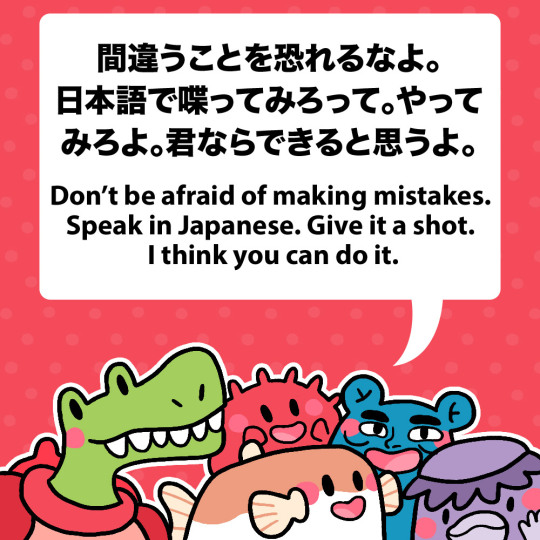
間違うことを恐れるなよ。日本語で喋ってみろって。やってみろよ。君ならできると思うよ。
まちがうことをおそれるなよ。にほんごでしゃべってみろって。やってみろよ。きみならできるとおもうよ。
Machigau koto o osoreru na yo. Nihongo de shabette mirotte. Yattemiro yo. Kimi nara dekiru to omou yo.
Don’t be afraid of making mistakes. Speak in Japanese. Give it a shot. I think you can do it.
1K notes
·
View notes
Text

今日はずっと本を読んだり電車に乗ったりしています... もう疲れています!(笑)
19 notes
·
View notes
Text


今回も怪談を読んでいます☆ やっぱり、私は怪談の小説が一番すきな小説タイプです!今日は6時間以上電車に乗っているので、多分今日はこの本を読み終わると思います!この本には短編小説がたくさんは入っています。
101 notes
·
View notes


